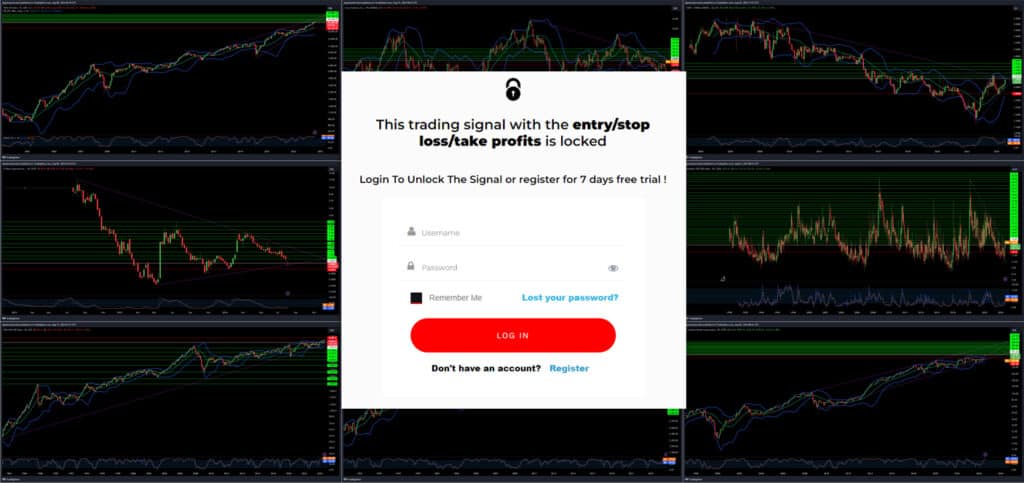Introduction
Trading signals have emerged as invaluable tools for investors looking to optimize their trading strategies. Whether you’re a novice trader learning the ropes or an experienced investor fine-tuning your approach, trading signals can provide the guidance needed to make smarter and more profitable trades. In this guide, we will dive deep into the world of trading signals, exploring how they work, the different types available, and how they can enhance your trading strategy.
What Are Trading Signals?
Trading signals are recommendations or prompts that suggest the best time to buy or sell a financial asset. These signals are typically generated through a combination of technical analysis and fundamental data. They provide actionable insights into market movements and help traders make well-informed decisions. Trading signals can be automated or manual and are based on patterns found in charts, volume levels, indicators, or news events. They are available for a wide range of asset classes, including stocks, forex, commodities, and cryptocurrencies.
How Trading Signals Work
The mechanics of trading signals vary depending on the underlying strategy used to generate them. At their core, trading signals analyze past and present market data to predict future price movements. These signals can be created using technical analysis, fundamental analysis, or a combination of both.
Technical vs Fundamental Signals
Technical signals rely on chart patterns, indicators, and historical price data. These signals often use mathematical tools, like moving averages or oscillators, to detect trends and momentum. On the other hand, fundamental signals are based on financial data and news events that impact market sentiment. For example, if a company reports higher-than-expected quarterly earnings, a fundamental signal may suggest buying that company’s stock.
Manual vs Automated Signals
Manual signals are generated by human traders who analyze charts, news, and economic data to identify profitable trades. While manual signals allow for a more tailored approach, they can be prone to human error and require considerable time and expertise. Automated signals, on the other hand, are produced by algorithms that analyze large amounts of market data in real-time. These signals are often faster and more accurate than manual signals, making them an appealing option for traders looking for efficiency.
Types of Trading Signals
There are several types of trading signals, each designed to suit different trading strategies and market conditions.
Price Action Signals
Price action signals are generated by observing an asset’s price movements over time. Traders look for specific patterns, such as “head and shoulders” or “double bottoms,” that signal potential reversals or continuation trends.
Volume-Based Signals
Volume-based signals focus on the amount of an asset being traded. An increase in volume can signal a strong price movement, while low volume may suggest weak momentum. For example, a sudden spike in volume during an uptrend could indicate continued bullish momentum.
Indicator-Based Signals
Indicator-based signals use technical tools like Moving Averages (MA), Relative Strength Index (RSI), and Moving Average Convergence Divergence (MACD) to provide trading recommendations. These indicators help traders identify trends, overbought or oversold conditions, and potential reversal points.
The Importance of Trading Signals for Investors
Trading signals offer numerous benefits to investors by streamlining the decision-making process and increasing the likelihood of success in the markets.
Risk Management
Trading signals play an important role in risk management. By providing clear entry and exit points, they help traders avoid emotional decision-making and reduce the risk of significant losses.
Timing Market Entry and Exit
One of the key benefits of trading signals is their ability to improve the timing of trades. A well-timed entry or exit can be the difference between a profitable trade and a loss, particularly in volatile markets.
Maximizing Profit Potential
Trading signals can help investors maximize profit potential by providing strategies for capitalizing on market movements. By following signals that include risk-reward ratios, traders can make informed decisions that align with their financial goals.
How to Use Trading Signals Effectively
While trading signals provide valuable insights, it’s essential to understand how to use them effectively for maximum benefit.
Understanding the Signal
Before acting on any signal, it’s important to fully understand what the signal is indicating. For example, if a signal suggests a buy, you should know the underlying conditions that triggered it and assess whether it fits your risk profile.
Implementing the Signal
Once you understand the signal, the next step is to implement it. This involves placing the trade according to the recommended entry, stop-loss, and take-profit levels.
Monitoring and Adjusting Your Strategy
Even the best trading signals require ongoing monitoring. Market conditions can change quickly, and it’s essential to be ready to adjust your strategy accordingly. Periodically reviewing your trades will help you fine-tune your approach for better results.
Choosing the Best Trading Signal Provider
There are many trading signal providers in the market, but not all offer the same level of quality and reliability. Here are a few factors to consider when choosing a provider.
Reliability and Accuracy
A good trading signal provider should have a proven track record of delivering accurate and reliable signals. Look for reviews and testimonials from other traders before committing to a service.
Customizability
Some trading signal services allow users to customize their signals based on specific preferences, such as trading style or risk tolerance. This flexibility can help you tailor the signals to better suit your personal strategy.
Cost and Access
Many trading signal providers offer subscription-based services, but it’s important to assess whether the cost is justified by the quality of the signals. Some providers also offer free trials or tiered pricing plans to suit different budgets.
The Future of Trading Signals
The trading world is constantly evolving, and so are trading signals. Here’s a look at how future innovations could shape trading signals.
AI and Machine Learning in Trading
Artificial intelligence (AI) and machine learning have already begun to revolutionize trading signals. By analyzing massive amounts of historical data and making predictions in real-time, these technologies offer the potential for more accurate and timely signals.
Predictive Analytics
Predictive analytics use statistical models and machine learning to forecast future market movements. As these technologies continue to advance, we can expect trading signals to become even more precise and sophisticated.
Conclusion
Trading signals are a powerful tool for investors looking to improve their trading strategies. By offering timely, actionable insights, they help traders make informed decisions, manage risks, and maximize profits. Whether you’re a beginner or an experienced investor, understanding and effectively using trading signals can enhance your trading success.
Disclaimer
All information on this website is of a general nature. The information is not adapted to conditions that are specific to your person or entity. The information provided can not be considered as personal, professional or legal advice or investment advice to the user.
This website and all information is intended for educational purposes only and does not give financial advice. Signal Mastermind Signals is not a service to provide legal and financial advice; any information provided here is only the personal opinion of the author (not advice or financial advice in any sense, and in the sense of any act, ordinance or law of any country) and must not be used for financial activities. Signal Mastermind Signals does not offer, operate or provide financial, brokerage, commercial or investment services and is not a financial advisor. Rather, Signal Mastermind Signals is an educational site and a platform for exchanging Forex information. Whenever information is disclosed, whether express or implied, about profit or revenue, it is not a guarantee. No method or trading system ensures that it will generate a profit, so always remember that trade can lead to a loss. Trading responsibility, whether resulting in profits or losses, is yours and you must agree not to hold Signal Mastermind Signals or other information providers that are responsible in any way whatsoever. The use of the system means that the user accepts Disclaimer and Terms of Use.
Signal Mastermind Signals is not represented as a registered investment consultant or brokerage dealer nor offers to buy or sell any of the financial instruments mentioned in the service offered.
While Signal Mastermind Signals believes that the content provided is accurate, there are no explicit or implied warranties of accuracy. The information provided is believed to be reliable; Signal Mastermind Signals does not guarantee the accuracy or completeness of the information provided. Third parties refer to Signal Mastermind Signals to provide technology and information if a third party fails, and then there is a risk that the information may be delayed or not delivered at all.
All information and comments contained on this website, including but not limited to, opinions, analyzes, news, prices, research, and general, do not constitute investment advice or an invitation to buy or sell any type of instrument. Signal Mastermind Signals assumes no responsibility for any loss or damage that may result, directly or indirectly, from the use or dependence on such information.
All information contained on this web site is a personal opinion or belief of the author. None of these data is a recommendation or financial advice in any sense, also within the meaning of any commercial act or law. Writers, publishers and affiliates of Signal Mastermind Signals are not responsible for your trading in any way.
The information and opinions contained in the site are provided for information only and for educational reasons, should never be considered as direct or indirect advice to open a trading account and / or invest money in Forex trading with any Forex company . Signal Mastermind Signals assumes no responsibility for any decisions taken by the user to create a merchant account with any of the brokers listed on this website. Anyone who decides to set up a trading account or use the services, free of charge or paid, to any of the Broker companies mentioned on this website, bears full responsibility for their actions.
Any institution that offers a service and is listed on this website, including forex brokers, financial companies and other institutions, is present only for informational purposes. All ratings, ratings, banners, reviews, or other information found for any of the above-mentioned institutions are provided in a strictly objective manner and according to the best possible reflection of the materials on the official website of the company.
Forex/CFD trading is potentially high risk and may not be suitable for all investors. The high level of leverage can work both for and against traders. Before each Forex/CFD investment, you should carefully consider your goals, past experience and risk level. The opinions and data contained on this site should not be considered as suggestions or advice for the sale or purchase of currency or other instruments. Past results do not show or guarantee future results.
Neither Signal Mastermind Signals nor its affiliates ensure the accuracy of the content provided on this Site. You explicitly agree that viewing, visiting or using this website is at your own risk.


